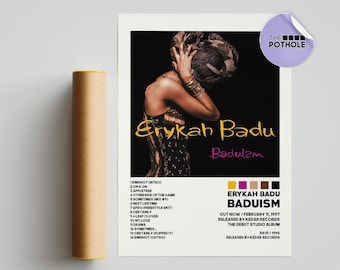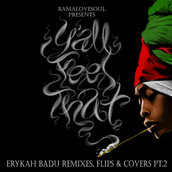

Though he didn’t see neo-soul as a “marketing strategy,” it was just that: a way to repackage ’70s soul for the masses and train listeners to value live instrumentation and vocals over the computerized pop-R&B of that era. “Because, when you classify music, it becomes a fad, which tends to go away,” Massenburg told Billboard in 2002. Black musicians can be hyper-vigilant of the relative impermanence of their culture and wary of being boxed in. In many ways, the backlash was grounded in fear.

Still, the man who coined the neo-soul term, Universal executive Kedar Massenburg, knew even the acts he’d signed, including Badu, had rejected the label. It was prestige R&B, with D’Angelo’s Brown Sugar (1995) and Maxwell’s Urban Hang Suite (1996) as prototypes. The ensuing neo-soul era was illustrious, merging the familiar crackle of vinyl sounds with contemporary relationship angst. And while artists from Usher to Brandy to Blackstreet added new-school bounce and flavor to the pop charts, neo-soul glimpsed back to a time when Marvin Gaye was crafting timeless soul out of divorce proceedings. Blige was turning anguish into hip-hop soul. The truth is that, in 1997, R&B did not need any saving: Aaliyah’s music lived in the future. But in carving space for this retro sound, the music world presented neo-soul artists as saviors who were bringing R&B “back to basics,” which dismissed the innovation that was already driving the genre. Their musical and artistic identities affirmed the mutual bond between Black love and liberation. Heralded as prodigies, they made lush serenades and instrumental jam sessions with a political center. They are full of control and surrender at the same time, confident in their search for answers even when there are none.īadu’s musical style had roots in the smooth harmonies of ’80s groups like Mint Condition and Tony! Toni! Toné!, along with the early songs of Meshell Ndegeocello, but it wasn’t until the late ’90s that neo-soul crystallized into a subgenre with a foundational crew of rebels: D’Angelo, Maxwell, Badu, Jill Scott. There’s a throughline to albums like Solange’s 2016 opus A Seat at the Table, which similarly harnesses the power of Black music as a salve. It stripped the act of soul-searching down to its philosophical elements, mining abstract concepts like self-love, romantic love, and spirituality. Baduizm was an instant hit of intimate existentialism.


The record went double platinum by summer and that year won the Grammy for Best R&B Album under the banner of a divisive new subgenre, neo-soul. Out of those demo sessions came her February 1997 debut, Baduizm, bookended by the original recording of “Rim Shot,” split into an intro and outro.


 0 kommentar(er)
0 kommentar(er)
